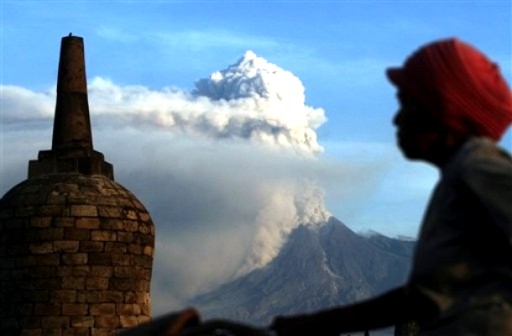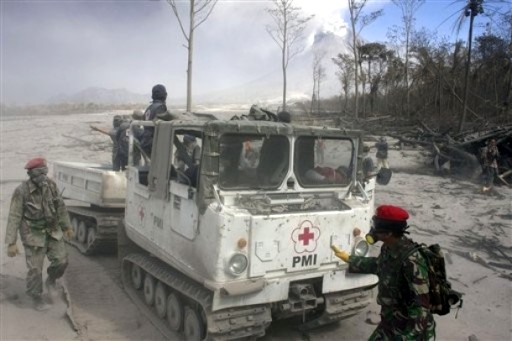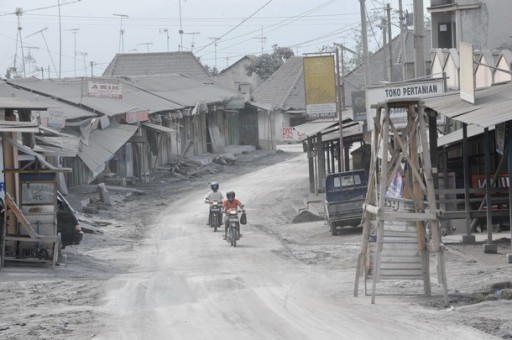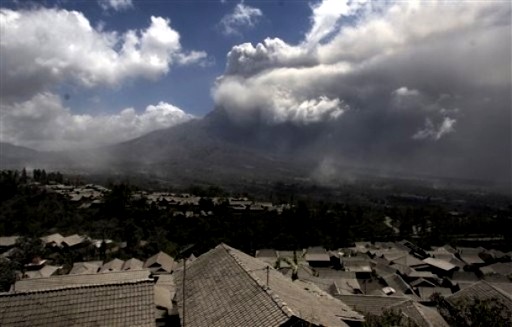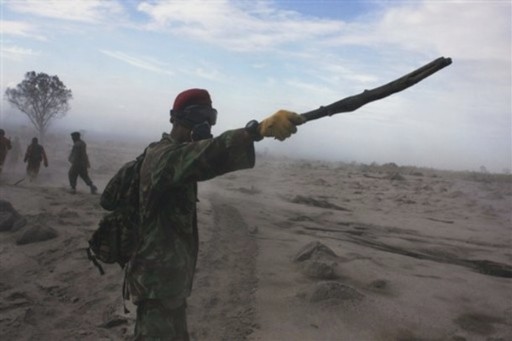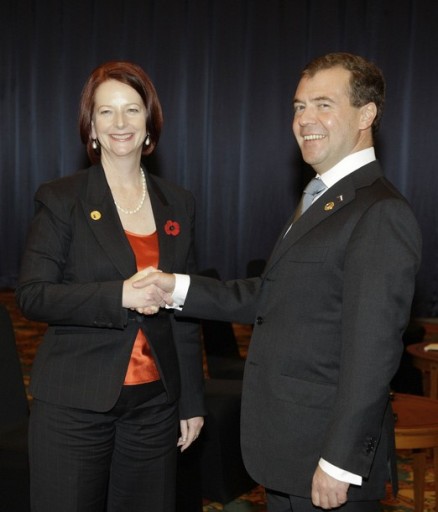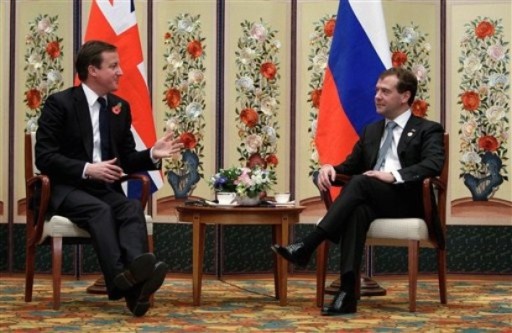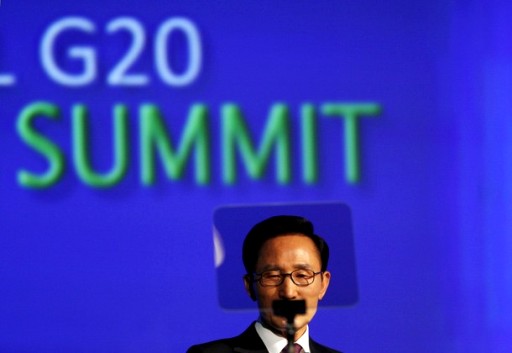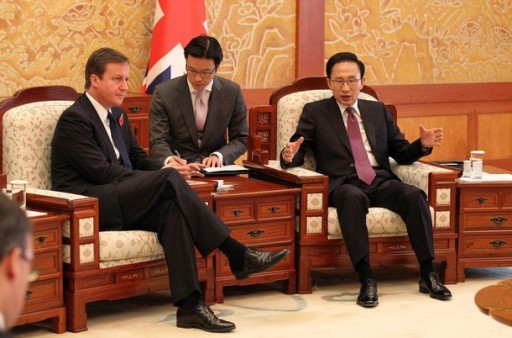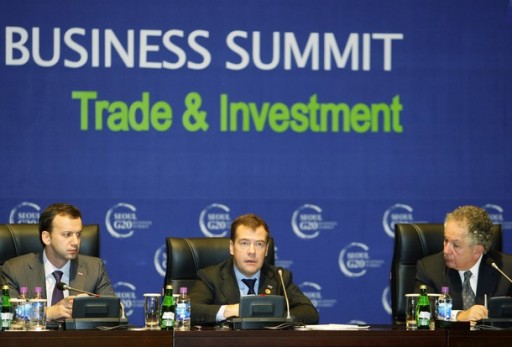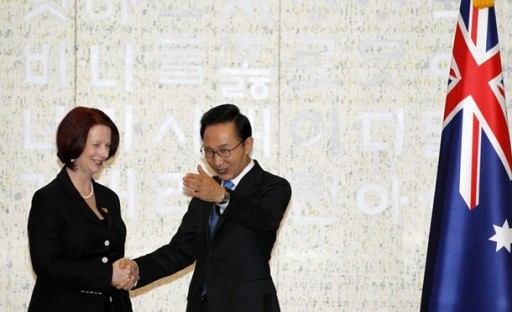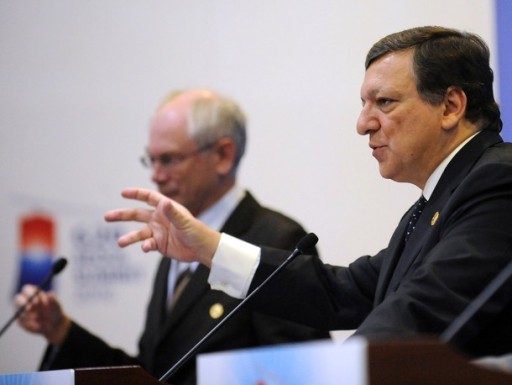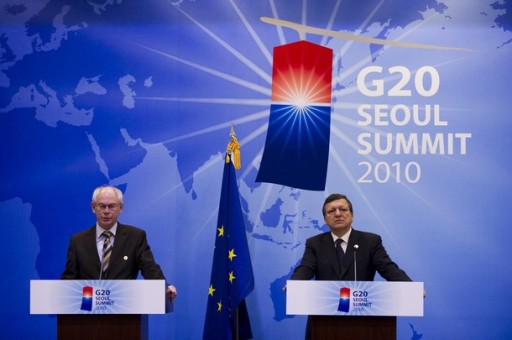
- US Secretary of State Hillary Clinton speaks as Israeli Prime Minister Benjamin Netanyahu looks on before a meeting in Washington, DC, on August 31, 2010. The Obama administration geared up for a bold bid to relaunch direct Palestinian-Israeli peace talks and clinch a peace deal within a year as Middle East leaders arrived in Washington (Photo by JEWEL SAMAD/AFP/Getty Images)
Please also visit :
KATAKAMI.WORDPRESS.COM
November 11, 2010 (KATAKAMI / THE AGE.COM.AU) --- US Secretary of State Hillary Clinton meets Israeli Prime Minister Benjamin Netanyahu on Thursday amid new strains between the two allies over Jewish settlements, further clouding hopes to renew peace talks.
Ahead of the talks, President Barack Obama and Clinton led global criticism over Israel's latest plans to build 1,300 houses in occupied east Jerusalem, where the Palestinian wish to form the capital of their future state.
Netanyahu dismissed the international response as "overblown," with his office saying on Tuesday there was "no connection between the peace process and the planning and building policies in Jerusalem."
Advertisement: Story continues below
Peace talks ground to a halt in September shortly after their launch when a 10-month Israeli moratorium on West Bank settlement construction expired, with the Palestinians refusing to talk until the ban is reimposed.
This week's announcement prompted Palestinian president Mahmud Abbas on Wednesday to call on the United Nations Security Council to urgently debate Israeli settlement building, again complicating the US task.
Warning against "unilateral steps" and expressing "deep disappointment" with the Israeli move, Clinton nevertheless sought to remain upbeat as Washington struggles to find middle ground that will allow to resume the peace talks.
"We still believe a positive outcome is both possible and necessary," she told a press conference in Washington.
Obama has made kick-starting the deadlocked Middle East peace process a central plank of his foreign policy and Clinton refused to give up hope.
"I remain convinced that both Prime Minister Netanyahu and President Abbas want to realize the two-state solution," Clinton said.
Netanyahu said he was going to discuss with Clinton "how to move towards a broad understanding of an agreement with the Palestinians and perhaps others in the Arab world based on security."
According to a senior Israeli official, the premier will raise "the need to reach broad understandings between Israel and the United States on Israel's security needs in a peace agreement."
Netanyahu has insisted Israel will maintain a military presence along the eastern border of the future Palestinian state.
Aaron David Miller, a Middle East expert at the Woodrow Wilson Center in Washington, said Netanyahu was likely to remain defiant.
The premier is determined "to make it unmistakably clear to the Americans that Jerusalem was never a part of this understanding and will not be a part of it in the future. There's no question that he's prepared to stand his ground," Miller told AFP.
Netanyahu believes that the Obama administration will not make settlements a "make or break issue" as they prefer to focus on the details of a future peace agreement, Miller said.
"The administration got itself on the wrong track by concentrating on settlements and not on dealing with the core issues. And now they are boxed in."
In Jerusalem, visiting US Senator John Kerry warned that the moment for Middle East peace was in danger of slipping away.
"The window of opportunity for a comprehensive peace is closing, narrowing is the best way to put it," he told reporters at a meeting with Israeli President Shimon Peres.
"This is a moment for statesmanship, it is a moment to try and define the opportunities and move forward rapidly."
(*)

